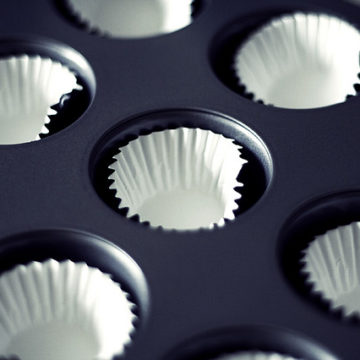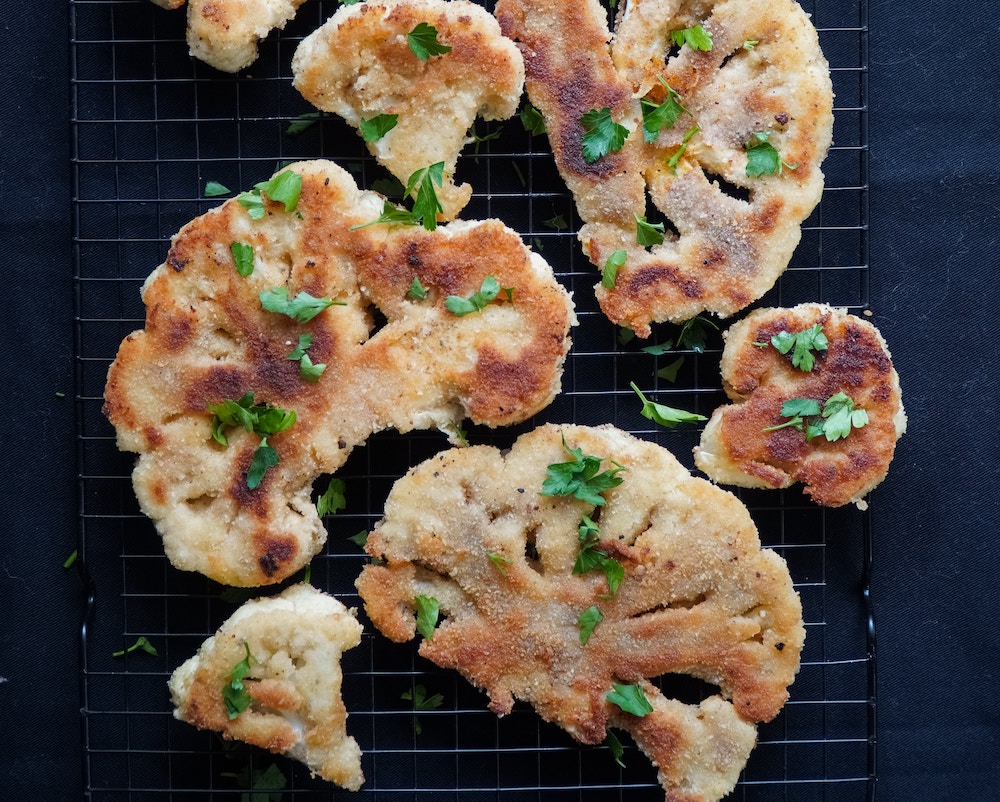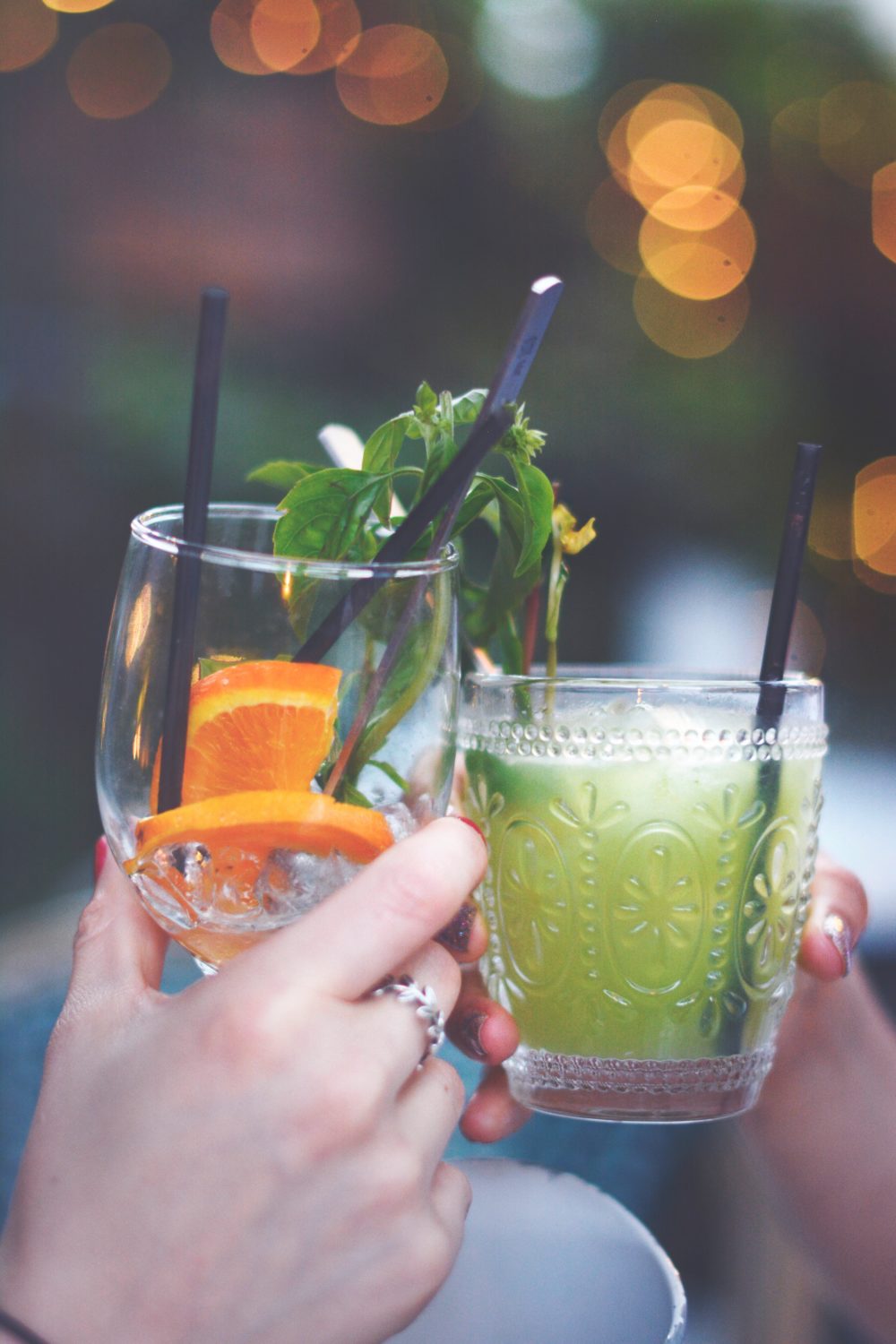About a year ago when I first heard about a whole foods plant-based diet, I learned that oil was not part of the diet. “But how do you cook?” I thought. “What about sautéing onions? Or baking bread or muffins? Won’t everything stick to the pan and be dry?”
To say that I was surprised when I learned that you can indeed cook without oil is an understatement. Why have I been using it all this time in every dish if I don’t need it to cook? Oil producers are very happy indeed because most Americans think, as I did, that you must use oil to cook. In reality, no oil is “heart healthy.” The studies that show olive oil lowers cholesterol are accurate, but they test subjects who switch from animal fats like butter to olive oil.
From my studies of nutrition science I have learned that the calorie is the metabolic dollar. It’s what you spend when you put any food into your body. But what does your “dollar” buy? Do you spend 100 calories on a tablespoon of olive oil (which is just fat), or do you spend that same 100 calories on a large kale salad with a bean-based vegan dressing? Choose the latter and you gain 6 grams of protein, 30% of your daily recommended fiber intake, lots of calcium, iron, vitamins A and C, as well as countless antioxidants and phytochemicals known and unknown. And which would you like to eat for lunch? We all want the most for our metabolic dollar: don’t spend it on fat, cook without oil!

1. Water Sauté
Here are my top 3 ways to cook without oil:
To cook anything in a pan, such as onions and garlic or other veggies, simply put the veggies in the hot pan and then add a little water. About 3 tablespoons, just a splash. Sauté the food and when the water evaporates just put a little more in. It keeps the veggies from sticking to the pan, doesn’t make them soggy because the water evaporates, and you end up with nicely browned veggies. The water conducts the heat from the pan so the food cooks evenly. Plus cleanup is a snap because there is no oily residue. Why would you put something in your body that you need a special “tough on grease” soap to remove it from your cookware?
2. In Baked Goods Recipes, Replace Oil or Simply Don’t Add Oil
When baking muffins or quick bread, you might think that oil is essential because of some chemical reaction that happens when baking, like with baking soda and baking powder. This is not true for oil. You can replace oil in baked recipes with anything moist: unsweetened applesauce, shredded zucchini, pumpkin puree, mashed sweet potato, and even chia seeds soaked in water. For regular bread and other recipes, simply don’t add the oil. The bread comes out fantastic! It just contains less fat. I use a recipe for 100% whole wheat vegan bread that contains no added meat, dairy, sugar, salt, or oil. I make this bread every week for my family’s lunch sandwiches and sometimes toast with breakfast.
3. To Prevent Sticking, Use Corn Meal
I used to rub a little olive oil onto my baking sheets with a paper towel to prevent my baked goods from sticking. My husband found out by experimenting that if you sprinkle a little bit of corn meal on the pan before putting your cookies onto the baking sheet, they will not stick to the pan. It really works! When you use a spatula to pick up your baked food, just brush off any stray cornmeal lightly. That way no oil is being absorbed by the food from the pan during baking. We use this method when we make plant based pizza in the oven. For food like roasted carrots or baked potato wedges, they are usually fine without any oil or corn meal since the veggies contain moisture that helps them not stick to the pan. Cover with tinfoil during the roast to help keep in excess water. For delicious baked whole sweet potatoes, just wrap them in tinfoil and toss them in the oven. No oil needed.
Also by Chelsea: First Foods for Your Vegan Baby
On Healthy Eating: Taste the Rainbow – The Benefits of a Colorful Diet
Get more like this—Sign up for our daily inspirational newsletter for exclusive content!
__
Photo: Roberta Farrugia; Mixy Lorenzo via Flickr





